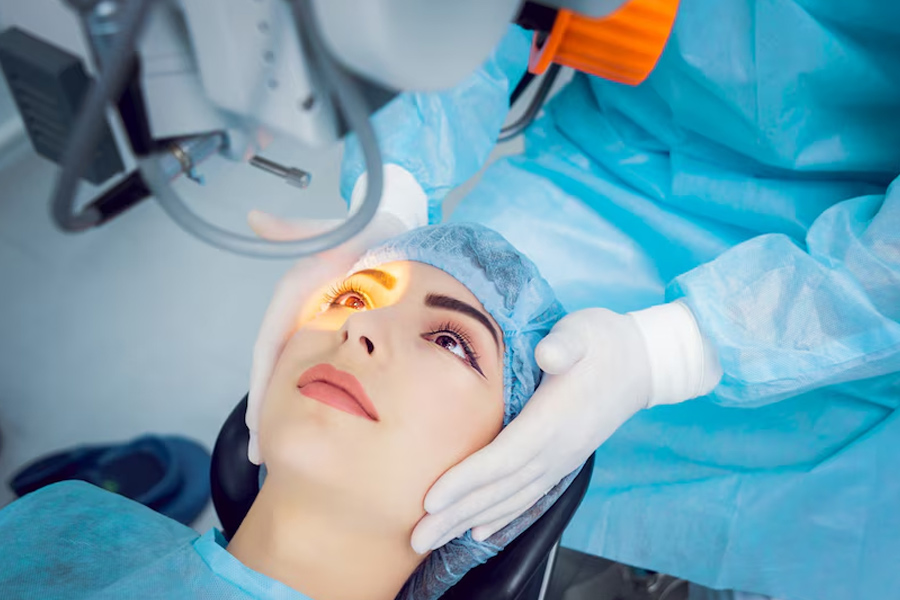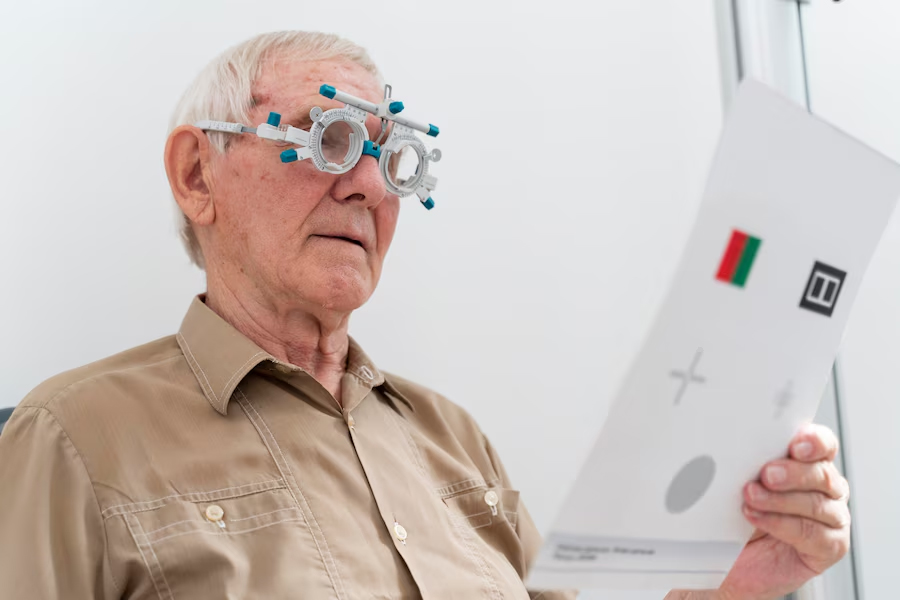
Are you opting for LASIK but are confused if it can store vision permanently? LASIK (Laser-Assisted In Situ Keratomileusis) is a commonly performed laser surgery for refractive errors like myopia, hyperopia, and astigmatism. It is an outpatient procedure known for its high success rates and recovery period. However, one major concern that most patients have is whether the effects of LASIK are long-lasting or if they will need to use corrective lenses in the future. We spoke to Dr Priyanka Singh (MBBS, MS, DNB, FAICO), Consultant and Eye Surgeon, Neytra Eye Centre, New Delhi, who shared insights on the same.
Table of Content:-

"During laser surgery, the cornea is reshaped in a manner that allows light to focus on the retina, which decreases or completely eliminates the need for corrective lenses. The alterations that are done to the cornea during LASIK surgery are almost permanent and may last for a lifetime. This means that the patient might not require glasses or contacts anymore," explained Dr Singh.
What Factors Can Impact Vision After LASIK Over Time?
According to the American Refractive Surgery Council, if your underlying condition (nearsightedness, farsightedness, or astigmatism) continues to worsen over time, your vision may also change.
While LASIK corrects current vision issues, it does not prevent natural age-related vision changes or the development of other eye conditions. Let us take a look at how LASIK works, what the changes in eye power that can occur after the surgery, and how stable the results really are:
Presbyopia

"It is an eye condition that happens naturally due to ageing. The lens of the eye shrinks and loses its ability to focus on nearby objects. This condition tends to begin at 40-45," said Dr Singh. Presbyopia also impacts the near vision of even those who have LASIK. Even though LASIK is useful in treating corneal refractive issues, it isn’t very effective in combating age-related problems.
Also Read: An Ophthalmologist's Guide To Who Can Consider A LASIK Surgery
Residual Refractive Errors and Regression
Following LASIK surgery, the eye has the potential to develop certain changes, which may result in a regression of nearsightedness, astigmatism or even farsightedness. This slight regression is termed a nearsighted, farsighted or astigmatic regression. "It may occur because of over-correction or under-correction made in the initial procedure, variations in corneal healing mechanisms or a pre-existing high level of refractive error, where regression tends to occur," added Dr Singh.
Changes In Lifestyle And Hormonal Changes
Changes associated with pregnancy, diabetes and other hormonal fluctuations may contribute to eye power alteration both temporarily and permanently, thus leading to changes even after the LASIK procedure. Similarly, increased screen time together with poor eye hygiene or strain may also result in changes to vision.
Eye Conditions and Diseases
Certain eye issues like keratoconus (which is a progressive thinning of the cornea) or cataracts can impact the vision leading to changes in eye power, irrespective of whether someone has had LASIK surgery.
Also Read: Opting For LASIK? Here Are Some Questions You Should Ask Your Ophthalmologist
Protecting Your Vision Post LASIK
If you want to enjoy the maximum benefits over time after undertaking a LASIK procedure, consider these tips shared by our specialists. These tips will also minimise the possibility of any changes to your visual power.
- Regular visits and review of your eyes with an ophthalmologist to keep track of your vision.
- Make sure to protect your eyes from harmful rays and overusing digital screens. Follow the 20-20-20 rule when sitting for long in front of a laptop or mobile.
- Keep track of lifestyle disorders like diabetes which can hinder your vision.
- Drink plenty of water and maintain a balanced diet consisting of nutrients beneficial for your eyes.
Bottomline
Dr Singh concluded, "Even though LASIK provides a long-lasting solution to eyesight problems, some might still experience changes in vision due to the natural changes that occur in an eye. Some people are fortunate enough to have a clear vision for years. However, lifestyle impacts, age and pre-existing conditions play a crucial role in determining how well eyesight is preserved after the procedure. Getting checkups regularly and seeing an eye specialist will help support eye stabilisation after LASIK."
[Disclaimer: This article contains information provided by an expert and is for informational purposes only. Hence, we advise you to consult your professional if you are dealing with any health issue to avoid complications.]
Also watch this video
Read Next
Second Meal Effect: Expert Explains What It Is And Its Role In Regulating Blood Sugar Levels
How we keep this article up to date:
We work with experts and keep a close eye on the latest in health and wellness. Whenever there is a new research or helpful information, we update our articles with accurate and useful advice.
Current Version